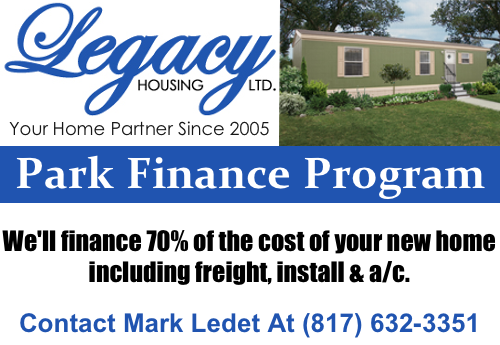The main competition to mobile home parks in the U.S. has long been apartments. For most of our customers, their sole choice in housing is a mobile home in a park or an apartment in a complex. So one of the chief reasons that mobile home park demand is soaring, as well as the continued elevation of mobile home parks into that strata of real estate that is attractive to lenders, has been the general decline – or maybe even nose-dive – of Class B, C and D multi-family properties.
Why We Don’t Include Class A Apartments
The average two-bedroom Class –A apartment in the U.S. rents for over $1,000 per month. For the demographic that is served by mobile home parks, this is impossibly high – often as much as 100% of their monthly take-home pay. So one of the interesting factors that have unhinged Class A, B, C & D apartments has been those skyrocketing rent levels at the upper end. Class A apartments pose no threat to mobile home parks as they have completely priced themselves out of the market for our customers. Every time you see a new apartment complex being built – and there are many of them – rest assured that the only possible relationship between that complex and your mobile home park residents might be that they mow the grass there.
Class B, C &D Have Entered a New Life Cycle
Old apartments never die – they just get tossed aside to non-professional owners. Such has been the case for an enormous proportion of apartment housing stock in recent years. Class B apartments normally lose their designation from A quality at 10 years of age. Class C begins at about 25 years, and Class D is normally Section 8. So to get a good idea of how much of the total apartments in the U.S. are now Class B or lower, we can simply look at the age of multi-family in the U.S. According to a Harvard study, the median age of all apartments in the U.S. now stands at 38 years. So it’s a good bet that at least 70% of all U.S. apartments are Class B or older. In addition, the same study suggests that only 18% of apartments now have institutional ownership, serviced by professional managers. So the Class B and under apartments have been migrating to non-professional ownership.
These New Owners Lack the Funds to Keep the Apartments Up
Aging apartments require huge capital investment to maintain. The same Harvard study states that capital expenditures to maintain aging apartments require 15% to 20% of gross revenue after age 20 and beyond. That’s in addition to the regular costs of operating and repair and maintenance. So to be an apartment owner of a Class B, C or D apartment complex, you have to be heavily capitalized. But that’s basically the opposite of those who have been buying these assets. Effectively, at the very time that apartments need a Daddy Warbucks to keep them functioning, the institutional investors dump them to the next level down on the food chain, which has the least ability to pay the bills.
Real Estate That Is Underfunded Has an Unhappy Ending
The quality of life for the tenants stuck in apartments that pass into Class B, C & D and have poorly funded owners is extremely low. Not only do they have problems with basic services such as functioning water, sewer, heat and air-conditioning, but the struggling owner has every reason to suspend criminal and credit screening to try and find less discriminating tenants who are willing to put up with such problems. The end result is a complex with crime, poor sanitation, unruly neighbors – all the conditions that make people want to move elsewhere. And where can they go? Only mobile home parks meet their budget. We see this phenomenon every day, in that the #1 reason that potential tenants tell us that they are interested in our parks is to get out of the horrible apartment complex they live in.
Another benefit has been the shift in city government hostility from the mobile home park in town to the Class B, C & D apartments in town. These apartments – once considered respectable – have now become the epicenter of police calls and health department violations. Once again, the park industry has been elevated due to the collapse of traditional multi-family.
Conclusion
Mobile home parks have been hugely benefitted by the life-cycle shift in the apartment stock that most parks compete with. One of the biggest drivers to mobile home park demand and desirability has been the collapse of Class-B, C & D apartments. And with the continued aging of all multi-family housing stock, this phenomenon continues to accelerate.



